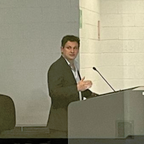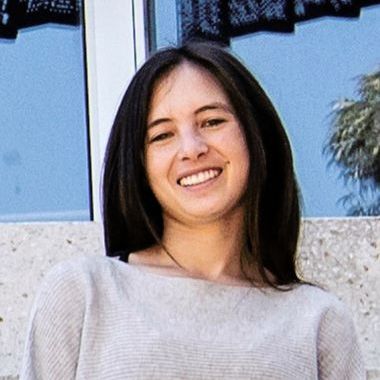- You are here:
- Homepage
- Events
- Correctional Research Symposium 2023
- Programme
Pre-conference course
Plenary
Pre-conference course
2pm – 5pm EDT, 27 March 2023 ‐ 3 hours
Plenary
- New approaches on the rehabilitation of offenders
- Digital transition in Justice
- Restorative Justice in post-sentential context
Event Check-In and Badge Collection
Plenary
Event Check-In and Badge Collection
8am – 9am EDT, 28 March 2023 ‐ 1 hour
Plenary
Welcome from the Organizers & Introduction to the Conference
Plenary
Welcome from the Organizers & Introduction to the Conference
9am – 9.10am EDT, 28 March 2023 ‐ 10 mins
Plenary
Host Welcome Speech
Plenary
Host Welcome Speech
9.10am – 9.15am EDT, 28 March 2023 ‐ 5 mins
Plenary
Speakers

Keynote: Bridging the Void - Supporting Reintegration (PID007)
Plenary
Keynote: Bridging the Void - Supporting Reintegration (PID007)
9.15am – 9.50am EDT, 28 March 2023 ‐ 35 mins
Plenary
Speakers

Fergus McNeill
Professor of Criminology and Social Work, University of Glasgow, United Kingdom
Panel Discussion: International Perspectives on Key Challenges for Rehabilitating Reintegration (PID204)
Plenary
Panel Discussion: International Perspectives on Key Challenges for Rehabilitating Reintegration (PID204)
9.50am – 11am EDT, 28 March 2023 ‐ 1 hour 10 mins
Plenary
Speakers



Coffee Break
Coffee Break
Coffee Break
11am – 11.30am EDT, 28 March 2023 ‐ 30 mins
Coffee Break
Reentry Through Our Lens: Participatory Photovoice with Older Criminal Justice-impacted Men (PID123)
Parallel Workshops
Reentry Through Our Lens: Participatory Photovoice with Older Criminal Justice-impacted Men (PID123)
11.30am – 12pm EDT, 28 March 2023 ‐ 30 mins
Parallel Workshops
Based on the Community-based Participatory Photovoice project "Reentry Through Our Lens", this presentation examines the community re/integration experiences of older men (aged 50 +) in the Northeast United States. The presentation will: 1) describe the participatory approach and novel virtual Photovoice method; 2) present the reentry experiences of older justice-impacted men, as told through their photographs and narratives; and 3) identify barriers to 'successful' reentry to suggest effective interventions that respond to the particular realities of older men transitioning from custody to community.Speakers
An Open-Access Approach to Reentry Services (PID113)
Parallel Workshops
An Open-Access Approach to Reentry Services (PID113)
11.30am – 12.15pm EDT, 28 March 2023 ‐ 45 mins
Parallel Workshops
An Open-Access Approach to Reentry Services is a presentation that describes a unique perspective on reentry services. Rather than envisioning reentry as a time-limited aftercare intervention, this model is responsive to when clients need intervention. This open-access approach is examined empirically by comparing outcomes of a treatment and intent-to-treat sample. Differences in recidivism rates will be reviewed, as will the importance of examining data by risk. Implications for the model will be discussed.Speakers

Children & their imprisoned fathers (PID101)
Parallel Workshops
Children & their imprisoned fathers (PID101)
11.30am – 12.15pm EDT, 28 March 2023 ‐ 45 mins
Parallel Workshops
Working restoratively with imprisoned fathers and their children does not seem to be the main focus of the prison system. However, improving the relationship between incarcerated fathers and their children benefits the prison environment, prevents crime, and prevents the intergenerational transmission of criminality. Avans University of Applied Sciences collaborates with Exodus and the Centre of Expertise on Children of Imprisoned Parents in order to promote restorative practices on this topic. We would like to inspire you with some of our projects and research on imprisoned fathers and their children.Speakers

Michael van Rijckevorsel

Angela Verhagen-Braspennincx

Anouk Smeenk

Marieke van Zwam
Roma people under non-custodial sanctions – residential, occupational and educational mobility. Glimpses from Romania (PID202)
Parallel Workshops
Roma people under non-custodial sanctions – residential, occupational and educational mobility. Glimpses from Romania (PID202)
11.30am – 12.15pm EDT, 28 March 2023 ‐ 45 mins
Parallel Workshops
The Romanian research team from NPD (National Probation Directorate) is carrying out a research on the topic of social mobility of Roma probationers and other vulnerable groups under the supervision of probation services. Having in mind the mobility (residential/ occupational/ educational) as a specific subject, the NPD research team apply a general research method, based on constant comparisons and oriented to an inductive approach. The research is based on a field study carried out with Roma offenders serving non-custodial sentence.Speakers

Diana Laura Biris
Probation Counsellor, Romanian National Probation Direction, Romania

The expectations and realities of release from a mandatory life sentence (PID015)
Parallel Workshops
The expectations and realities of release from a mandatory life sentence (PID015)
12pm – 12.30pm EDT, 28 March 2023 ‐ 30 mins
Parallel Workshops
This session presents findings from an empirical study on the release of mandatory life-sentenced prisoners. Utilising a short-longitudinal research design, the project conducted two sets of interviews with prisoners: (T1) before their release from prison, and (T2) five months later in the community.This presentation examines both their expectations and realities of release, the role of temporary releases and specific prison regimes in preparing them for release, and the impact of the transition on their reintegration and sense of self.
Speakers

The Chance for Reentry project – practical outputs and scientific findings of innovative system of support for prisoners placed in pre-release units in Slovakia (PID057)
Parallel Workshops
The Chance for Reentry project – practical outputs and scientific findings of innovative system of support for prisoners placed in pre-release units in Slovakia (PID057)
12.15pm – 1pm EDT, 28 March 2023 ‐ 45 mins
Parallel Workshops
The Chance for Reentry project is national project implemented by Slovakian Prison and Court Guard Service (in partnership with The Central Office for Labour, Social Affairs and The Family) from 10/2018 till 09/2023 (60 months). The main goal of the project is to reduce the risks of social exclusion of 3600 prisoners and increase their competencies to be successful in the labour market in order to minimize the risk of recidivism and to limit possible emergencies. This presentation will summarize practical outputs and scientific findings of project activities coming from the creation of an innovative system.Speakers

Lt. JUDr. Jakub L'orko
NESTOR _ A national Network of Schools for Parents in Prison (PID092)
Parallel Workshops
NESTOR _ A national Network of Schools for Parents in Prison (PID092)
12.15pm – 1pm EDT, 28 March 2023 ‐ 45 mins
Parallel Workshops
The presentation will focus on the achievements and the expected outcomes of the NESTOR project which aims to enhance prisoners’ parenting skills by establishing a Network of 30 Schools for Parents in the prison environment in Greece.Speakers


A useful cooperation between prisoners and academics for a better reintegration (PID105)
Parallel Workshops
A useful cooperation between prisoners and academics for a better reintegration (PID105)
12.15pm – 1pm EDT, 28 March 2023 ‐ 45 mins
Parallel Workshops
Universities may contribute to reintegration of prisoners, as shown by our experience as volunteers at the Italian prison of Milano-Bollate. Professors and researchers of criminal matters, in cooperation with inmates, provide legal support to prisoners. We help inmates by filing applications for alternatives to detention. We also facilitate the work of prison staff by clarifying legal rules on rehabilitation and easing communication with inmates. Inmates who cooperate with us acquire over time a confidence with law and discover a particular satisfaction of helping their felllow.Speakers

Prof. Massimiliano Dova PhD
Professor of Criminal Law, University of Milano-Bicocca, Italy
"That's my story, I can't change it" - the experience of reintegration of men serving a life sentence in Ireland (PID110)
Parallel Workshops
"That's my story, I can't change it" - the experience of reintegration of men serving a life sentence in Ireland (PID110)
12.30pm – 1pm EDT, 28 March 2023 ‐ 30 mins
Parallel Workshops
The presentation will focus on the experience of reintegration of men serving a life sentence from the perspective of a community based service provider. PACE provides accommodation, training, social enterprise and prevention services to people with a wide range of convictions. PACE Prevention Services works with people who have convictions for harmful sexual behaviour. PACE works on a pre and post release basis with men serving life sentences. The presentation will examine the narrative research into the experience of men who have served a life sentence and the real life experience of PACE.Speakers
What Works vs. What’s Right in Rehabilitating Reintegration (PID205)
Plenary
What Works vs. What’s Right in Rehabilitating Reintegration (PID205)
2pm – 3pm EDT, 28 March 2023 ‐ 1 hour
Plenary
Speakers

Dr. Sonja Snacken
Emeritus Professor of Criminology, Penology and Sociology of Law, Vrije Universiteit Brussel, Belgium

Jana Spero Kanenjarin
General Secretary, Confederation of European Probation, Netherlands
Coffee Break
Coffee Break
Coffee Break
3pm – 3.30pm EDT, 28 March 2023 ‐ 30 mins
Coffee Break
The Initial Transitional Support (ITS) service: Impacts of a 12-week reintegration support service on reoffending and implications for best practice (PID004)
Parallel Workshops
The Initial Transitional Support (ITS) service: Impacts of a 12-week reintegration support service on reoffending and implications for best practice (PID004)
3.30pm – 4.15pm EDT, 28 March 2023 ‐ 45 mins
Parallel Workshops
This presentation outlines a series of evaluation studies that explored processes and outcomes associated with a reintegration support service administered by Corrective Services NSW in collaboration with community Non-Government Organisations, named the Initial Transitional Support (ITS) service. We report on an initial evaluation of impacts on recidivism, which was followed by multiple studies of ITS processes that provided context to the observed outcomes and insights about best practice in service planning and implementation.Speakers

Research and Reflections on What Works for Those With Mental Health Needs (PID041)
Parallel Workshops
Research and Reflections on What Works for Those With Mental Health Needs (PID041)
3.30pm – 4.15pm EDT, 28 March 2023 ‐ 45 mins
Parallel Workshops
This workshop will present the results of two recent studies focused on reintegration approaches and practices viewed from different perspectives and those which are most effective with individuals with mental health and addiction needs. The two studies are "Mental Health in Community Corrections: International Perspectives" conducted by the International Assocation of Correctional and Forensic Psychology (IACFP) and the study funded by the Confederation of European Probation (CEP) assessing the knowledge of and attitudes to mental illness on the part of probation staff accross Europe.Speakers
Professor Charlie Brooker
Royal Holloway, University of London and International Association for Correctional and Forensic Psychology, United Kingdom

Cherie Townsend
Executive Director, International Association for Correctional and Forensic Psychology, United States
Unlocking the full potential of small-scale and community-integrated facilities (PID075)
Parallel Workshops
Unlocking the full potential of small-scale and community-integrated facilities (PID075)
3.30pm – 4.15pm EDT, 28 March 2023 ‐ 45 mins
Parallel Workshops
Many European countries are increasingly using small-scale and community-integrated facilities to house incarcerated people. This trend is particularly interesting given the fact that, compared to other types of prisons, small-scale and community-integrated prisons have proven to perform better in facilitating the reintegration process of incarcerated people. By combining evidence-based and practice-informed insights, this presentation will elaborate on the full potential of small-scale and community-integrated facilitiesSpeakers

A complementary approach: The Prem Rawat Foundation’s Peace Education Program as a catalyst for self-directed behaviour change among persons deprived of liberty in São Paulo, Brazil (PID114)
Parallel Workshops
A complementary approach: The Prem Rawat Foundation’s Peace Education Program as a catalyst for self-directed behaviour change among persons deprived of liberty in São Paulo, Brazil (PID114)
3.30pm – 4.15pm EDT, 28 March 2023 ‐ 45 mins
Parallel Workshops
This presentation looks at a case study of The Prem Rawat Foundation’s Peace Education Program during COVID-19 pandemic across correctional facilities spanning justice system and levels of reintegration in São Paulo, Brazil.Proposal: A symposium comprising three presentations addressing:
• Role of a “whole society” approach engaging incarcerated volunteers, community volunteers and NGOs
• Findings from a survey of 5,000+ respondents, which provides emerging evidence for TPRF’s Peace Education Program as a catalyst for self-determined behavioural change, irrespective of age or gender, among incarcerated in São Paulo, Brazil.
• How TPRF’s Program may complement and even enhance existing reintegration approaches for increasing desistance, and human and social capital.
Speakers

Coaches for (re)integration in a systematic reintegration network in Bremen, Germany (PID066)
Parallel Workshops
Coaches for (re)integration in a systematic reintegration network in Bremen, Germany (PID066)
4.15pm – 5pm EDT, 28 March 2023 ‐ 45 mins
Parallel Workshops
The presentation will introduce in Bremen's systematic reintegration management realized by the CHANCE network underlining the importance on strengthening the cooperation between governmental institutions of the justice system and non-governmental civic society organizations to elaborate solutions on a structural, organizational and operational level. Further, the approach of "Coaches for (re)integration" will present the advantages of a one-on-one support for (released) inmates with multiple problems and specific needs aiming the social and professional (re)integration into society.Speakers

Julia Brand
Research Associate & Project Manager CHANCE project, Free Hanseatic City of Bremen, Ministry for Justice and Constitution, Germany

Svenja Boening
Balancing public safety and choice and control for people with cognitive impairment who are forensic patients (PID087)
Parallel Workshops
Balancing public safety and choice and control for people with cognitive impairment who are forensic patients (PID087)
4.15pm – 5pm EDT, 28 March 2023 ‐ 45 mins
Parallel Workshops
The journey of people with cognitive impairment who have committed serious crimes and have a high risk of further offending is described from both their perspective and that of their case managers. This qualitative narrative addresses how to impact successful maintenance of public safety while also supporting choice and control for those who have offended. The management of people who have offended but are not able to participate in court proceedings and their journey through custodial environments and pathways to the community are explored from their and the case managers perspectives.Speakers


Katerina Nesporek
Team Leader - Transition Coordination, Community Safety Program, Diversity and Responsivity, Corrective Services NSW, NSW Department of Communities and Justice (DCJ), Australia
Black Female Prisoner’s Lives Matter: Redefining Black Female Prisoner's Reintegration With A Digital Twist (PID077)
Parallel Workshops
Black Female Prisoner’s Lives Matter: Redefining Black Female Prisoner's Reintegration With A Digital Twist (PID077)
4.15pm – 5pm EDT, 28 March 2023 ‐ 45 mins
Parallel Workshops
The presentation aims to show the significance of digital inclusion in the reintegration of Black female prisoners using evidence-based and practice-informed approaches. The session will also address some of the concerns raised from the lived experiences of Black female ex-prisoners regarding race, cultural inclusivity and sensitivity. The goal is to provide practitioners/ service providers with insights and practical strategies to adopt in their reintegration policies and practices to improve outcomes of reintegration/ resettlement programmes.Speakers

Grace Famoriyo
Course Director/Lecturer/Researcher/Magistrate, Anglia Ruskin University, United Kingdom
Cooperation as an answer to the complexity of reintegration of detainees (PID106)
Parallel Workshops
Cooperation as an answer to the complexity of reintegration of detainees (PID106)
4.15pm – 5pm EDT, 28 March 2023 ‐ 45 mins
Parallel Workshops
The reintegration of detainees is complex and requires complex solutions. In Flanders and Brussels, the reintegration of detainees is organized by the Flemish network “Assistance and social services”. With a multi-agency approach and a multidisciplinary organization, the existing aid and services in society are imported intramuros (import model). Through different policy domains (welfare, sports, culture, employment, education and health), we try to focus on a succesful reintegration. The presentation will outline the import and network model in Flanders and Brussels.Speakers


Liesbet Claeys
Wrap Up and Reflections on the day
Plenary
Wrap Up and Reflections on the day
5pm – 5.45pm EDT, 28 March 2023 ‐ 45 mins
Plenary
Details to followMental health and reoffending: latest evidence on assessment and treatment (PID206)
Plenary
Mental health and reoffending: latest evidence on assessment and treatment (PID206)
8.30am – 9.30am EDT, 29 March 2023 ‐ 1 hour
Plenary
An overview of the research evidence investigating links between mental health conditions and reoffending risk will be provided. There will be a discussion on the new science of risk assessment, which is based on transparent, scalable and evidence-based tools that provide probability scores and well calibrated models, and summarize recent trials and other high quality research that examines psychological and pharmacological therapies to reduce reoffending risk.Speakers

Rehabilitating Reintegration – Singapore’s Journey (PID080)
Parallel Workshops
Rehabilitating Reintegration – Singapore’s Journey (PID080)
9.30am – 10.30am EDT, 29 March 2023 ‐ 1 hour
Parallel Workshops
This 60-minute workshop will be jointly conducted by the Singapore Prison Service (SPS) and Yellow Ribbon Singapore (YRSG). The presentation will focus on SPS' and YRSG's evolution in how it developed and designed its reintegration approach and practices, with a specific emphasis on the evolution and expansion of Community Corrections, the Yellow Ribbon Project (YRP) and the growth of a local network of community partners called the CARE Network. We will cover the elements that has helped us succeed, and the challenges and lessons we have picked up in our journey.Speakers

Troy Jack Thevathasan
Deputy Director, Correctional Rehabilitation Services, Psychological and Correctional Rehabilitation Division, Singapore Prison Service, Singapore


Tan Wee Zi
Women's Pathways Into, Through and Out of Prison: Understanding the Needs, Challenges and Successes of Women Imprisoned for Drug Offending and Returning to Communities in Thailand (PID051)
Parallel Workshops
Women's Pathways Into, Through and Out of Prison: Understanding the Needs, Challenges and Successes of Women Imprisoned for Drug Offending and Returning to Communities in Thailand (PID051)
9.30am – 10.30am EDT, 29 March 2023 ‐ 1 hour
Parallel Workshops
Thailand places a high priority on the gender-specific contexts out of which offending arises and the differential needs of women in the criminal justice system. Despite this, Thailand has the highest female incarceration rate in South East Asia, and there has been substantial growth since the 1990s. This increase has been driven by punitive changes in drug law, and criminal justice policy/practices, which have disproportionately impacted women. As female representation in Thailand’s prisons grows, so does the number of women who return to communities. Thus, one of the challenges facing Thai society is the efficacious re-integration of growing numbers of formerly incarcerated women. However, what is known about re-entry comes almost exclusively from studies of prisoners (usually men) returning home in western societies. Re-integration does not occur in a vacuum. Supporting women post-release necessitates knowledge of their pathways to, experiences of, and journeys out of prison. Utilising in-depth interviews with (n = 80) imprisoned/formerly incarcerated women and focus groups with (n = 16) correctional staff, this research identifies what constitutes re-entry successes and explores the needs, and challenges of women returning to the community in Thailand. Findings showed that women had multifaceted and intersectional needs which directed their pathways into, during, and out of prison.Speakers

Chontit Chuenurah
Director of the Office for the Bangkok Rules and Treatment of Offenders, Thailand Institute of Justice, Thailand

Dr Yodsawadi Thipphayamongkoludom PhD
Project Manager for the Office for the Bangkok Rules and Treatment of Offenders, Thailand Institute of Justice, Thailand
Delivering non-discriminatory community-based sanctions: Lessons from research and action in Europe (PID020)
Parallel Workshops
Delivering non-discriminatory community-based sanctions: Lessons from research and action in Europe (PID020)
9.30am – 10.30am EDT, 29 March 2023 ‐ 1 hour
Parallel Workshops
Led by Penal Reform International, the University of Coimbra Institute for Legal Research and the Hungarian Helsinki Committee, this session invites participants into a discussion on challenges, opportunities and good practices in achieving equity and non-discrimination in delivering re-entry support and community-based sanctions. Findings from a pioneering study of the use and implementation of non-custodial sanctions across 22 EU countries, alongside lessons from a pilot project and capacity building with criminal justice stakeholders in Hungary and Portugal will inform the discussion.Speakers

Tanja Dejanova
Penal Reform International, Hungarian Helsinki Committee, University of Coimbra, Netherlands, Hungary, Portugal

Karla Ishiy


Inês Horta Pinto
Ildiko Berzsenyi

Ana Cristina Pestana Neves PhD.
Head of Division, Implementation of Community Sanctions and Measures, Directorate-General of Prison and Probation Services (DGRSP), Portugal
The power of digital and creative environments (PID125)
Parallel Workshops
The power of digital and creative environments (PID125)
9.30am – 10.30am EDT, 29 March 2023 ‐ 1 hour
Parallel Workshops
Click F1 and Changes&Chances are 2 NGO’s that share knowledge and inspire each other in our work for prisoners and ex-prisoners and share their knowledge with a large network of organizations in Europe. In this way we want to play a role in improving education and create innovation in prisons. Click F1 is specialized in digital learning and secured digital environments and Changes&Chances is specialized in art-education. Four examples of projects we are working on regarding reintegration, creativity and blended learning are given.Speakers

Alice Erens

Coffee Break
Coffee Break
Coffee Break
10.30am – 11am EDT, 29 March 2023 ‐ 30 mins
Coffee Break
Using electronic monitoring well to promote rehabilitation and reintegration (PID024)
Parallel Workshops
Using electronic monitoring well to promote rehabilitation and reintegration (PID024)
11am – 11.30am EDT, 29 March 2023 ‐ 30 mins
Parallel Workshops
The use of electronic monitoring (EM) is rising. As the number and diversity of wearers increases new challenges present themselves for using it well. EM can be habit breaking and assist with the custody-community transition, however these positive possibilities are likely to be lost if EM is not used responsively and fairly. This presentation will discuss the current deployment of EM which limits its effectiveness and rehabilitative and reintegrative potential. It will then explore how EM can be used well, by making it more responsive and fair, thereby catering better for the diversity of wearers.Speakers

CHANGES: an experimental implementation of a cognitive-behavioral strategy to reduce recidivism in France (PID068)
Parallel Workshops
CHANGES: an experimental implementation of a cognitive-behavioral strategy to reduce recidivism in France (PID068)
11am – 11.45am EDT, 29 March 2023 ‐ 45 mins
Parallel Workshops
The CHANGES training (based on the STICS program developed in Ontario, CA) is currently implemented in France as part of an experiment with two probation departments, on the initiative of the National School of Corrections. It is the first attempt to provide officers with an evidence-based cognitive-behavioral strategy to supervise offenders, face-to-face. The content of the CHANGES program will be presented, particularly from the perspective of trainers and PO users. The levers and brakes to implement such strategies will be discussed, as well as the future of this small-scale experience.Speakers
Elliot Louan
IERDJ (Institut des Etudes et de la Recherche sur le Droit et la Justice), France
The role of understanding harm and restoration in offender reintegration (PID093)
Parallel Workshops
The role of understanding harm and restoration in offender reintegration (PID093)
11am – 11.45am EDT, 29 March 2023 ‐ 45 mins
Parallel Workshops
The presentation aims to add to the theoretical discussion, bridging the victimology and criminology gap. Most discourse within rehabilitation and detention fail to consider the role of harm, to both the offender and victim, that results from the offense. The presentation will use the Netherlands as a case study to understand where the opportunities and challenges lie.Speakers


Lisanne Veldt
The Prison Officer’s Role in Rehabilitation – Using a Trauma-Informed Approach (PID120)
Parallel Workshops
The Prison Officer’s Role in Rehabilitation – Using a Trauma-Informed Approach (PID120)
11am – 11.45am EDT, 29 March 2023 ‐ 45 mins
Parallel Workshops
Professor Danielle McDermott will present based on her experience working within HMPPS, focused on the Prison Officer’s unique role in rehabilitation. The vision of His Majesty's Prison and Probation Service is to work together to protect the public and help people lead law-abiding and positive lives (HMPPS, 2019). This vision will be unpacked - relative to the prison officer role - within this session.Speakers
A befriending project with people who left prison (PID056)
Parallel Workshops
A befriending project with people who left prison (PID056)
11.30am – 12pm EDT, 29 March 2023 ‐ 30 mins
Parallel Workshops
In this presentation we focus on the experiences of a befriending project in Flanders, Bridge Inside Outside. Within this project volunteers, in close collaboration with professionals, provide support to people released from prison. We elaborate on the role of the professional social worker to support the volunteers and to tackling problems of poverty, structural barriers and stigma.Speakers
Ilse Ielegems
The Importance of Evidence-based Assessment and Intervention - From Intake to Prison to Sentence Completion in the Community (PID201)
Parallel Workshops
The Importance of Evidence-based Assessment and Intervention - From Intake to Prison to Sentence Completion in the Community (PID201)
11.45am – 12.30pm EDT, 29 March 2023 ‐ 45 mins
Parallel Workshops
Drawing on work in Canada as well as internationally, this presentation will focus on how the evidence-based assessment of offenders and the use of assessment results to guide appropriate interventions is the foundation of a "What Works" approach to corrections, contributing to the safety and security of offenders, staff and the public, the humane custody of prisoners, the ability to individualize case and sentence planning, and the monitoring of change over time.Speakers

Health literacy for women released from prison in Brazil: improving intervention for health promotion based on research evidence (PID050)
Parallel Workshops
Health literacy for women released from prison in Brazil: improving intervention for health promotion based on research evidence (PID050)
11.45am – 12.30pm EDT, 29 March 2023 ‐ 45 mins
Parallel Workshops
The presentation discusses ongoing doctoral research carried out in Brazil with women released from prison, in which we aimed to develop and validate educational material with health guidelines for women released from prison. We designed a multimethodological study with a qualitative approach, with the aim of identifying needs, understanding the narratives of women about the experience of imprisonment, the marks they carry. The importance of materials within the scope of health education is discussed to increase the literacy of these women based on the language and perception they have.Speakers

Patricia de Paula Queiroz Bonato
University of São Paulo, New University of Lisbon (NOVA-IHMT), Brazil
Rehabilitating Reintegration through Yoga & mindfulness: the experience from the Czech Republic (PID005)
Parallel Workshops
Rehabilitating Reintegration through Yoga & mindfulness: the experience from the Czech Republic (PID005)
11.45am – 12.30pm EDT, 29 March 2023 ‐ 45 mins
Parallel Workshops
Speakers

Offender Management in Custody: a lost opportunity in prisoner resettlement (PID071)
Parallel Workshops
Offender Management in Custody: a lost opportunity in prisoner resettlement (PID071)
12pm – 12.30pm EDT, 29 March 2023 ‐ 30 mins
Parallel Workshops
We will present the findings of the 2022 inspection of prisoner resettlement work (England and Wales) undertaken by prison and probation inspectors using samples of prisoners and recently released people on license. The findings will be analysed through the lens of implementation and policy failure. We will end by presenting some recommendations to improve prisoner resettlement.Speakers


Leaving Switzerland upon release: how to ensure reintegration schemes do not leave behind foreing inmates (PID058)
Parallel Workshops
Leaving Switzerland upon release: how to ensure reintegration schemes do not leave behind foreing inmates (PID058)
1.30pm – 2pm EDT, 29 March 2023 ‐ 30 mins
Parallel Workshops
Switzerland has one of the highest rates of foreign prisoners in Europe (70%) and many of them will be deported upon release. As a result, these detainees do not benefit from the full array of services aiming at detainees' reintegration - a major challenge for prison authorities. This practice-informed presentation will highlight local projects supporting foreign detainees in developing meaningful projects in their country of origin. Emphasis will be placed on synergies among the many stakeholders involved and the full participation of detainees as key criteria for effective reintegration.Speakers

Jean-Sébastien Blanc
Swiss Center of Expertise in Prison and Probation, International Social Service Switzerland

Michèle Demierre
Application of Trauma-informed Practice in Forensic Intervention Services (PID028)
Parallel Workshops
Application of Trauma-informed Practice in Forensic Intervention Services (PID028)
1.30pm – 2pm EDT, 29 March 2023 ‐ 30 mins
Parallel Workshops
This presentation will show a component of a wider project focusing on the application of trauma informed practices in forensic intervention services, highlighting the rationale, methodology, and some preliminary findings of a qualitative investigation of clinical staff and their experiences, understanding, and use of trauma-informed practices. Preliminary qualitative data and anecdotal reflections will be provided. This project component has received ethics approval and data collection and analysis is currently being finalised.Speakers

Dr. Julia Chan
General Manager, Prison Interventions (Forensic Psychologist), Forensic Intervention Services, Australia
What Works? A Global South perspective (PID127)
Parallel Workshops
What Works? A Global South perspective (PID127)
1.30pm – 2.15pm EDT, 29 March 2023 ‐ 45 mins
Parallel Workshops
This presentation aims to highlight the limitations and potential of a number of good practices in education and reintegration of imprisoned persons that have been developed in the Global North and South, such as 'prisons without police' (Brazil), university pavilions in prisons (Argentina), respect modules (Spain and France), and therapeutic prison-communities (England).The first results show how practices in the Global South are more directed towards the education of society and the involvement of civil society segments in the construction of a political educational project.
Speakers

The work of psychologists and social workers in the probation and correctional systems for public safety in Georgia (PID104)
Parallel Workshops
The work of psychologists and social workers in the probation and correctional systems for public safety in Georgia (PID104)
1.30pm – 3pm EDT, 29 March 2023 ‐ 1 hour 30 mins
Parallel Workshops
The work of psychologists and social workers in the probation and correctional systems for public safety in Georgia is presented.Speakers
Nino Tkeshelashvili
Special Penitentiary Service of Georgia, National Agency for Crime Prevention, Execution of Non-Custodial Sentences and Probation, Ministry of Justice of Georgia
Tamar Zhvelia
Ethnocultural offenders, correctional programming, and a mapping of experiences (PID064)
Parallel Workshops
Ethnocultural offenders, correctional programming, and a mapping of experiences (PID064)
2pm – 2.30pm EDT, 29 March 2023 ‐ 30 mins
Parallel Workshops
Semi-structured interviews with 39 Ethnocultural offenders (i.e. non-White, non-Indigenous federally sentenced persons who want to preserve their cultural identity and related practices) on conditional release are used to explore the utility and relevance of correctional programs and services. Participant experiences are interpreted against the writings of Tommie Shelby and James Baldwin. The results highlight the need for and complexity of delivering, within Canada’s federal prisons, supports that are respectful and relevant.Speakers

Learning inside out (LIO) in all prisons in Flanders and Brussels (PID045)
Parallel Workshops
Learning inside out (LIO) in all prisons in Flanders and Brussels (PID045)
2pm – 2.30pm EDT, 29 March 2023 ‐ 30 mins
Parallel Workshops
Learning inside out (LIO) project offers individual coaching towards an education. This support is in addition to the educational programmes currently on offer in the prisons. With an intense orientation, the client gains insight into his or her talents and potential and can use them to map out his or her future. The inmate and the career coach research into what (preliminary) training is possible in prison and what programmes/training are only possible after detention (internships, practical training, labs, etc.). Based on this information, a plan is drawn up.Speakers

Factors influencing implementation of the Offender Management in Custody (OMiC) model to manage and support women in prison and their resettlement back into the community (PID061)
Parallel Workshops
Factors influencing implementation of the Offender Management in Custody (OMiC) model to manage and support women in prison and their resettlement back into the community (PID061)
2.15pm – 3pm EDT, 29 March 2023 ‐ 45 mins
Parallel Workshops
Using a developmental evaluation approach, HM Prison and Probation Service have assessed implementation of The Offender Management in Custody (OMiC) model across all women’s prisons. OMiC is a transformational programme to improve the way women are supported through their sentence, spanning custody and the community. We have enhanced our analytical understanding of the implementation approach,and the barriers and enablers. We have gathered data and evidence to inform decisions on adaptation and gained insight into what works, for who, under what circumstances, across multiple settings.Speakers


Zoe Markham
Combining Project Based Learning, Positive Criminology and Systemic Practices for rehabilitation within a Prison Context (PID069)
Parallel Workshops
Combining Project Based Learning, Positive Criminology and Systemic Practices for rehabilitation within a Prison Context (PID069)
2.30pm – 3pm EDT, 29 March 2023 ‐ 30 mins
Parallel Workshops
This presentation, drawing from research in Maltese prisons, shows how one can combine a Systemic Therapeutic Approach, embedded in a philosophy of Positive Criminology, through Informal Education Projects and Positive Modelling in a prison environment. The innovative element in this approach to rehabilitation is the strong involvement of significant others (such as partners, families or friends) in educational programmes inside the prison. The project involves the bringing together, in a community for rehabilitation, the person in prison, the educator, the significant other and the prison officer.Speakers
Dr. Joseph Giordmaina
University of Malta & University of Portsmouth, Malta & United Kingdom
A country-by-country or regional approach to preventing radicalisation and violent extremism? Main challenges, structural needs and lessons learned (PID203)
Parallel Workshops
A country-by-country or regional approach to preventing radicalisation and violent extremism? Main challenges, structural needs and lessons learned (PID203)
2.30pm – 3pm EDT, 29 March 2023 ‐ 30 mins
Parallel Workshops
Speakers


Vânia Sampaio
Head of Directory for Security and Criminal Justice Cooperation, IPS_Innovative Prison Systems, Portugal

Pedro Liberado
Board Member, Chief Research Officer & Coordinator of Radicalisation, Violent Extremism and Organised Crime Portfolio, IPS_Innovative Prison Systems, Portugal
Coffee Break
Coffee Break
Coffee Break
3pm – 3.30pm EDT, 29 March 2023 ‐ 30 mins
Coffee Break
Closing Panel: Lived Experience Perspectives on Rehabilitating Reintegration (PID200)
Plenary
Closing Panel: Lived Experience Perspectives on Rehabilitating Reintegration (PID200)
3.30pm – 5pm EDT, 29 March 2023 ‐ 1 hour 30 mins
Plenary
This closing panel from Ireland will share their lived experience of rehabilitation and reintegration. Through the perspective of James Leonard and Timmy Long, successful mental health podcasters known as The Two Norries who have both served custodial sentences, together with that of the Irish Prison Service and the Cork Alliance Centre (a critical community-based reintegration service), the panel will explore what makes a positive difference. Innovatively, The Two Norries’ podcast leads the way in discussing difficult topics in an honest and open way, with both the hosts and guests sharing of themselves for others well-being, both inside and outside of prison.Speakers


Fergal Black


Timmy Long

Sheila Connolly

Visits of prisons and community facilities
Prison Visits
Visits of prisons and community facilities
9am – 12pm EDT, 30 March 2023 ‐ 3 hours
Prison Visits
- A female prison with a management partnership between the Ministry of Justice and a welfare institution
- A male prison with a special unit for Mental Disorder prisoners




































































